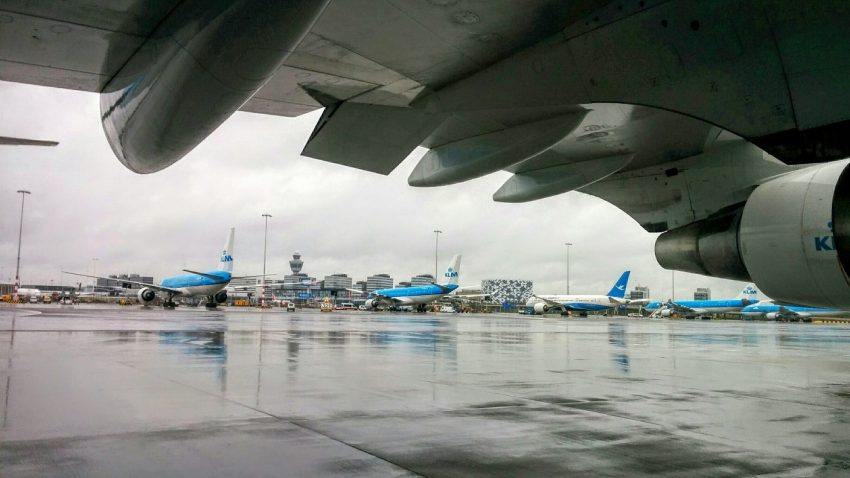The covid-19 pandemic has an enormous impact on the aviation industry. National governments, the EU and international bodies are acting quickly with short term policies on slot regulations, travel restrictions and state aid. But besides short-term policy, governments should also continue their other tasks, such as setting out policy for the long term. The Dutch government is currently working on its aviation white paper for 2020 – 2050, titled “Responsible flying towards 2050”. This blog will highlight some of the main points of the white paper and how To70 will contribute to responsible flying towards 2050.
Before Covid-19
In the previous aviation white paper, published in 2009, the government put emphasis on supporting the growth of the aviation sector in the Netherlands. With the number of passenger and aircraft movements increasing almost continuously for the past 10 years, one can conclude that this policy has been very successful. This growth connected the Netherlands even better with the world. But this growth also caused capacity constraints and people living in the vicinity of airports to experience an increase in traffic. During this same decade, climate treaties were signed, demand for houses skyrocketed and the first drones in all forms and shapes took to the skies. All these developments, and many more to come, must be met by effective policy.
The aviation white paper is the result of an extensive public consultation procedure. The draft of the white paper was published this spring. With all views gathered the government is now working on finalising the white paper.
Towards a new balance
With its new white paper, the Dutch government is aiming towards a new balance between People, Planet and Profit (PPP), with safety being the ultimate priority of course. The aviation sector must reduce its negative impact on people, nature and the environment. Within these boundaries, qualitative development of the aviation sector should be possible. These boundaries are set by the growth-earn model: a reduction in noise and emission is necessary for airports to earn growth. Airports are tasked to explore their future development together with local stakeholders. The outcomes of these procedures are translated by the government into new airport decrees, which will contain clear and enforceable rules, setting the boundaries for each individual airport. To70 supported the first exploration into the future of Eindhoven Airport, the largest regional airport of the Netherlands. This case will set an example for other airports to follow, with some already being on their way.
Facilitating innovation
As mentioned before, the first drones in all forms and shapes are taking to the skies. They are already used for things such as professional filming, inspections of infrastructure and by many private enthusiasts. Furthermore, many smart solutions with drones are being developed. The government acknowledges the potential of these innovations and wants to provide space in the sky for drones (and maybe even flying cars). A new ATM system for UAV’s should provide this space and ensure safe co-existence between the manned and the unmanned.
In order to make aviation more sustainable, the government is counting on a broad range of innovations, from more efficient engines and electric taxing via sustainable fuels to electric and hybrid flying. A broad range of (potential) innovations and measures are identified, but the white paper often lacks precise actions or a more detailed planning. In Dutch tradition of consensus decision making, these operational aspects are put into action-programmes. These action-programmes will bring together different stakeholders, including universities and innovative companies, to further work out the plans for the future.
The impact of COVID-19
The introduction of a white paper amid a large crisis might sound like the government has lost touch with reality. But policy doesn’t come falling out of the sky, it requires time to develop based on factual research and public consultation. Throwing away everything and starting over after the COVID-dust has settled would not make sense for most of the white paper’s content. Even if it is unclear if and when traffic numbers will reach pre COVID levels, aircraft have to become quieter and cleaner, the airspace has to become more efficient and innovations have to be encouraged and given a place in the sky.
[blockquote text=”Policy doesn’t come falling out of the sky, it requires time to develop based on factual research and public consultation.” text_color=”#004361″ show_quote_icon=”yes”][vc_separator type=’transparent’ position=’center’ color=” thickness=’5′ up=” down=”]
To70’s ongoing contribution to responsible flying towards 2050
To70 has supported the establishment of the white paper by providing overall support and insights into specific topics. To70 for example conducted an extensive study into the effects of different new runway configurations for Schiphol Airport on nuisance and runway capacity. We also contributed to research on building an entire new airport in the North Sea and aided the government with their public consultation procedure.
There is plenty of work to be done between now and 2050 on a broad range of areas within the aviation sector. Our diverse team of specialists and generalists is already working hard on this. Besides a variety of projects on environment and innovation, multiple colleagues of ours are seconded at the Ministry of Infrastructure and Water, working on sustainable aviation and the redesign of the Dutch airspace.
To70 will continue to support all involved stakeholders on the road towards 2050 with high quality analyses.
About To70. To70 is one of the world’s leading aviation consultancies, founded in the Netherlands with offices in Europe, Australia, Asia, and Latin America. To70 believes that society’s growing demand for transport and mobility can be met in a safe, efficient, environmentally friendly and economically viable manner. To achieve this, policy and business decisions have to be based on objective information. With our diverse team of specialists and generalists to70 provides pragmatic solutions and expert advice, based on high-quality data-driven analyses. For more information, please refer to www.to70.com.

